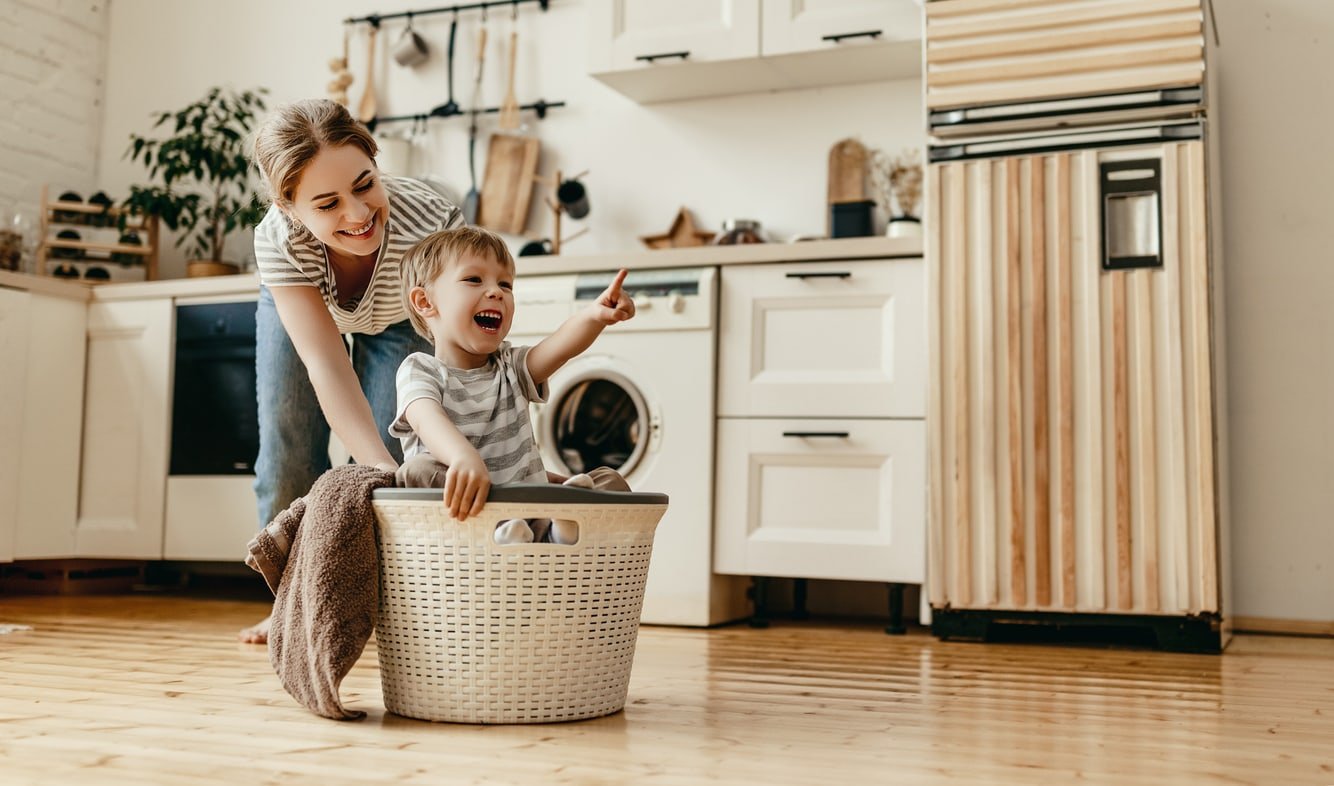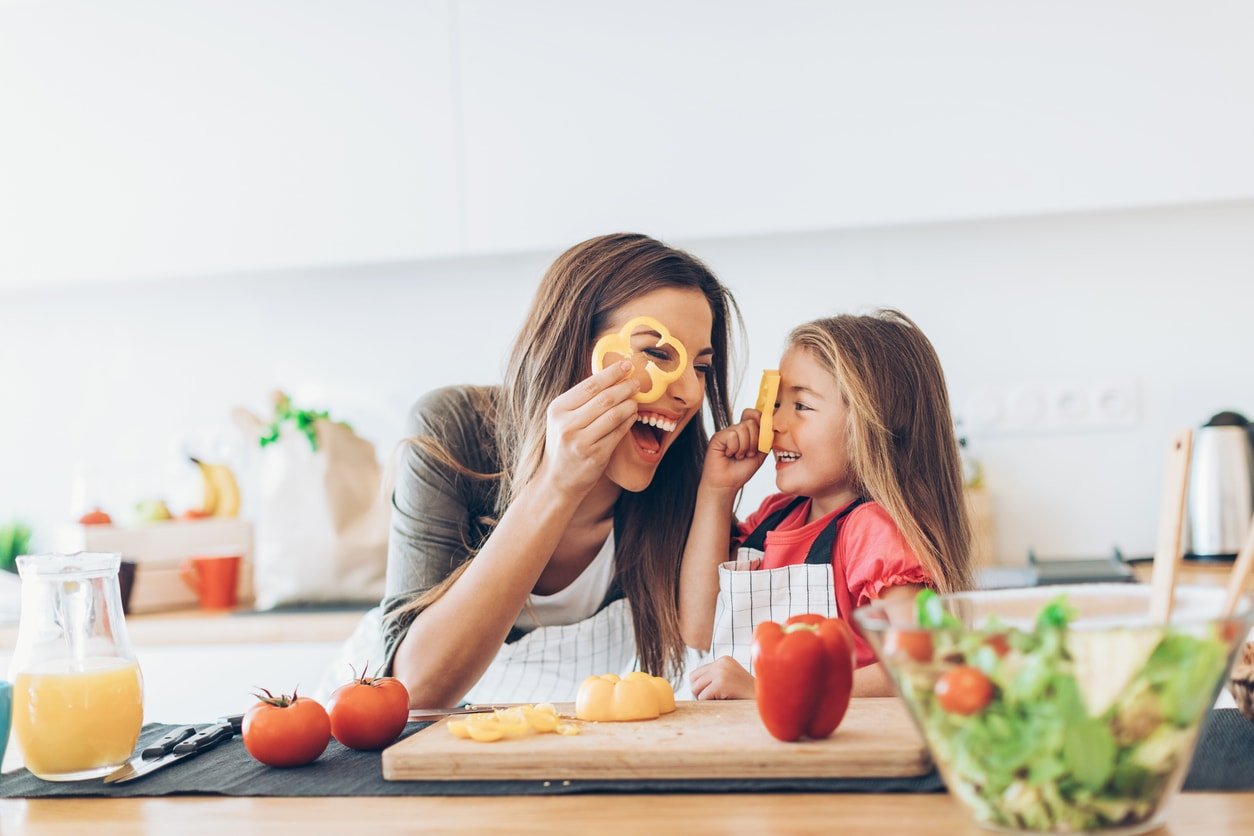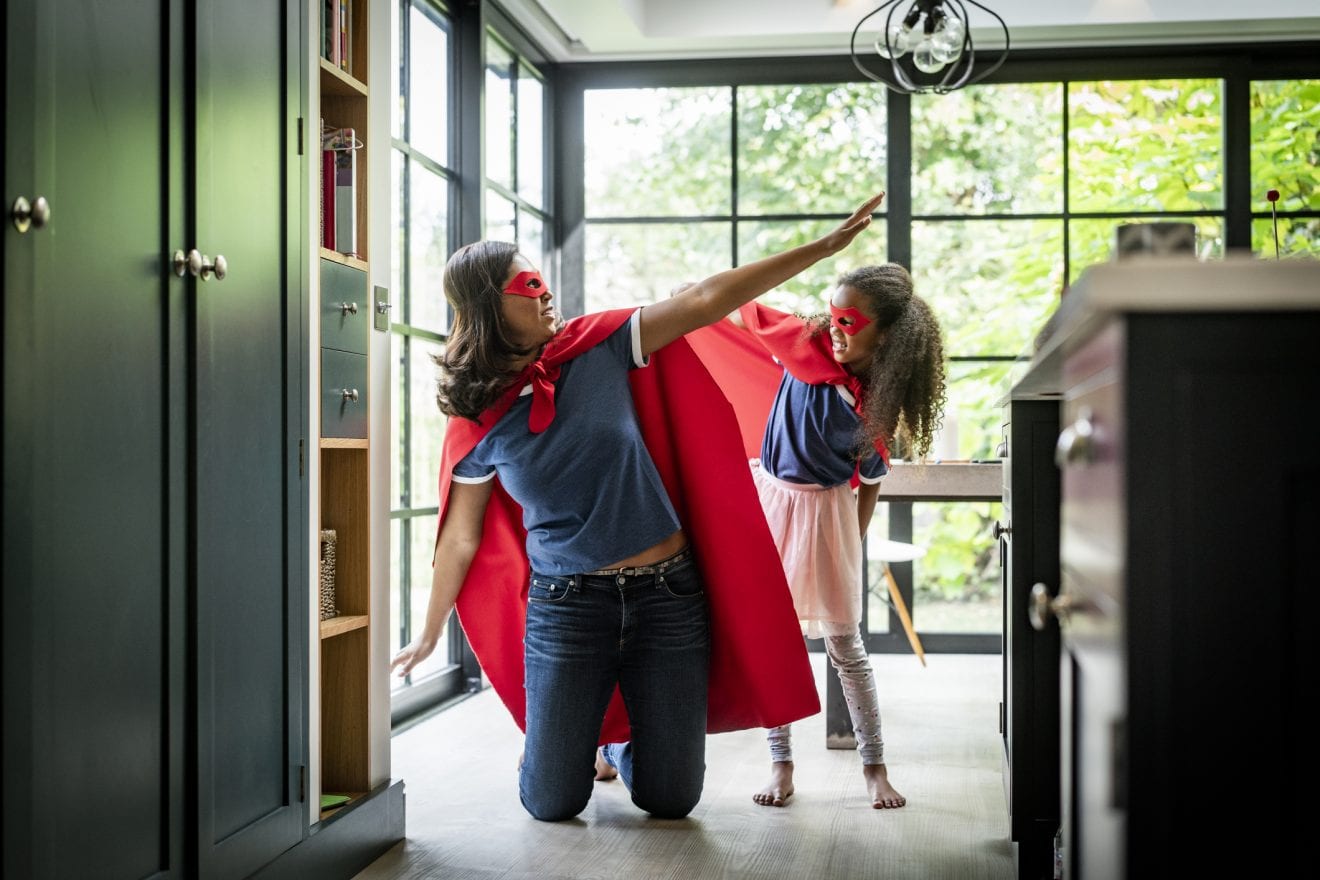It’s easy to get stuck in a parenting rut, and let’s face it: parenting can sometimes feel a little like “Groundhog Day” — the same routines on repeat day in, day out. While routine and structure are incredibly important for our children (and us!), we can sometimes forget to have fun. We feel tired and don’t have the energy to get down on the ground and play with our kids, or we’ve simply forgotten how to let go, be spontaneous and whimsical, and use our imaginations. However, playful parenting can be an important tool or approach when it comes to raising our children.
Do you have any vivid memories of childhood and your parent(s)? It was probably something magical or slightly outside of the ordinary that meant it was etched in your mind. Did you have a day where you built cubby forts together? Did you both take a day off school and work and go to the beach for ice cream? Playful parenting is about turning everyday moments into opportunities for play and connection. It emphasizes the use of humor, games, or imaginative play in everyday interactions and even as part of discipline.1

Playfulness is important in the parent-child relationship because these kinds of interactions create strong bonds due to the creation of joyful memories and emotional connections.1 Having positive experiences helps influence a child’s sense of security and attachment to their parents. Playfulness can also reduce stress in both parents and children. When we laugh and play, our body releases endorphins that improve mood and reduce stress levels.1
It’s not just playful parenting that’s important; play itself is crucial to children’s development and well-being. Some of the benefits include:1,2,4
When we allow children to explore their world without too much interference or rules (especially our grown-up ideas of how toys should work or our notions of how to play with something “correctly”), they get to stretch their imaginations. They also learn how to solve problems or address challenges by getting creative and thinking outside the box.
When children play pretend, especially role-play, they practice using words in different ways or try new things without the pressure of a formal learning or teaching moment. This lack of judgment and space allows them to play and practice without fear. They can change their words or language depending on their role, which further enhances language development.
Play also allows kids to develop coordination and strength. They might kick a ball, jump, or crawl around pretending to be a tiger (gross motor skills). When they put on costumes, they’re practicing using zips or buttons, and during coloring, they’re practicing a pincer grip (fine motor skills). Play is full of incidental skills development opportunities!
Children learn to be more flexible and adaptive as they shift and switch between games or characters as they play. This is sometimes referred to as “loose parts” play. It’s when children combine different types of play or use different materials or objects during play. It enhances and reinforces skills such as reasoning, problem-solving, executive functioning, and cognitive flexibility as children incorporate various elements in their play.
Emotional Regulation and Empathy
Similarly to the point about language, when children have the chance to play and explore in a safe environment, they can practice skills like emotional regulation. They can also express their emotions or explore and work through challenging situations. In addition, when they role-play, they step into someone else’s shoes and learn about thinking from another person’s perspective (the cornerstone for empathy). They can also practice empathy when they take on roles/personas of “helpers” — police, nurses, vets, etc.

Playful parents consciously encourage humor and imagination and incorporate play into everyday interactions.1 Instead of telling their child what to do, a playful parent might teach them a life lesson through a game, using jokes or silly voices to diffuse tension or turn some of those boring but essential daily tasks and chores into a game. They can even turn discipline on its head and make a challenging situation enjoyable or address difficult behaviors or situations by using humor or their imagination.1
For example, instead of using a “timeout” or scolding their child for making a mess, a playful parent might turn cleanup time into a fun competition by seeing who can put away the most toys in one minute. The task becomes more enjoyable, but their child is still learning the importance of cleaning up after themselves.
There are many ways you can learn how to be playful or incorporate more play into everyday life, including:
Put your phone down, turn the TV off, put your work laptop in its bag . . . whatever is distracting you, distance yourself from it. Be present with your child and have some one-on-one time together. It doesn’t have to be hours upon hours; it’s more about quality than quantity.
Some parents might find this tricky or awkward if they’ve lost touch with their imagination or creative spark. So, just sit down next to your child while they play, and if you aren’t sure what to do, ask them to explain something to you (who the characters are, their roles, or what the aim is, etc.). If you feel comfortable, you can narrate their play and share what you see them doing. For instance, “You’re playing cars, and the family is going shopping.” Or you can jump right in, feet first, and play with them. Adopt your own character or role, participate, and let your imagination run wild! Trust me; they will love this even if you feel awkward or out of your depth.
Pull a funny face, wiggle your eyebrows, cross your eyes, and tell funny jokes. Just make a point to inject a bit of silliness into your day! If you don’t feel like you’re that funny or aren’t sure where to start, find a funny book or look up kid-friendly jokes. Use funny accents when you’re talking and lean into their play. If your child is saying something goofy or fantastical, instead of correcting them, play along!
Don’t give them too many toys — they can get overwhelmed and spend too much time deciding which toy to play with rather than actually playing. Instead, provide them with lots of role-play or dress-up costumes so they can practice empathy. Also, give them “open-ended” toys that don’t have a predetermined character, role, or outcome. Children can use their imagination to play with these toys in a number of ways.3 Open-ended toys include blocks, crafts, boxes, dollhouses (with simple or generic dolls, not ones with preset characters), etc.
This could mean going geocaching, kicking a ball at the park, hiking, playing nature bingo, riding a bike, etc. Or you could grab a book and have a picnic together in the great outdoors. You may even do a formal activity that’s set up and run by someone or a company, like a guided tour of somewhere scenic (think places like a local monument or a tour of the city you live in). Another idea is to take your child for a trial for a local outdoor sports team (soccer, beach volleyball, baseball, etc.). Who knows — they may love it and want to join! Or you could find a local team to watch if that’s more your speed.
Every now and then, be open to adventure. Seize the moment and explore something new. Instead of sitting at the table for dinner, you can eat outdoors. Wake them up early to see the sunrise, or stay up late to see the sunset. Surprise them by having a “yes” day (where you only say “yes” to things). The options are endless!
It’s important to understand that a playful parent still has boundaries and rules; they just create a balance in everyday life. They know when to use play to get the same outcome as grumbling, nagging, or scolding. Playful parenting is not only a great way to foster a positive parent-child connection, but it also helps create magical moments that children (and parents) will remember fondly when they’re grown and thinking back to their childhood.

 PARENTING TIPS
PARENTING TIPS PREGNANCY
PREGNANCY BABY CARE
BABY CARE TODDLERS
TODDLERS TEENS
TEENS HEALTH CARE
HEALTH CARE ACTIVITIES & CRAFTS
ACTIVITIES & CRAFTS


